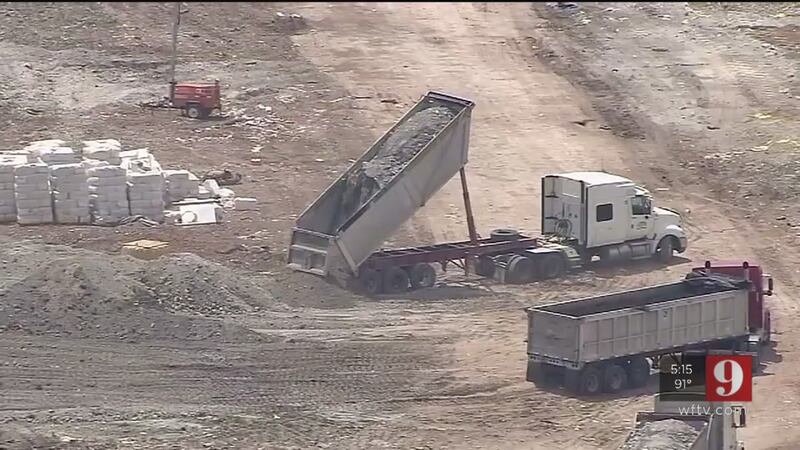OSCEOLA COUNTY, Fla. — City Council members in St. Cloud will be forced to choose Thursday night between backing down on a recent decision and the potential for a pricey lawsuit over the fallout from it.
The financial drama dates back to May, when Osceola County commissioners voted to allow Waste Connections, Inc. and its JED Landfill near Holopaw to dispose of coal ash generated by Puerto Rican power plants now that the Caribbean island has outlawed dumping the coal ash there.
The commission’s vote was done without public notice, a political scandal ensued and the commission refused to reverse the permission it gave, citing the potential for litigation.
Puerto Rico’s ban on coal ash dumping, and general public opposition to it, is rooted in data showing that coal ash contains heavy metals like arsenic and mercury. The Environment Protection Agency says those metals are present at low enough levels in Puerto Rico’s coal ash to be deemed “nonhazardous.”
For a decade or so, the liquid runoff from JED -- known as leachate -- had been trucked to the city of St. Cloud’s wastewater treatment plant for processing. The City Council voted in June to void the contract it had with Waste Connections and stop accepting leachate, citing the potential for the potentially toxic contents of the coal ash to end up in the city’s treatment plant.
Residents like Lindsay Delano viewed the council’s vote as an unexpected stand taken against dumping coal ash in Central Florida.
“They actually surprised us. I was very, very happy,” Delano said. “We have several council members who stood up for us as a whole, you know? It’s been a while since I’ve been St. Cloud proud, and the city did that.”
Two months later, a letter surfaced from attorney Ralph Dameo at the Baker Donelson law firm, sent on behalf of Waste Connections and JED. It refers to a previously unknown meeting between St. Cloud city leaders and Waste Connections in which the possibility of a lawsuit was discussed and a potential settlement to avoid it was drafted.
The proposed settlement asks the city to either pay back $68,110 for a combination of legal fees and costs incurred temporarily shipping leachate to Tampa, or to repay the amount via credits to Waste Connections’ account with the wastewater plant, to allow the treatment of additional leachate beyond what the company’s original contract promised, or to extend that contract by another decade on top of the 10 years left on it currently.
“There’s a lot of emotion and, frankly, hysteria associated with this material, which is completely unfounded,” Dameo said. “There is no scientific, factual or legal basis for the objections.”
Dameo’s letter includes explicit instructions for publicly absolving Waste Connections of any wrongdoing.
“The City Staff and/or Council will make appropriate statements on the record [that] they accept that there are no issues of concern relating to acceptance of Waste Connection’s leachate by the city,” the letter says, “that the leachate is not hazardous, and that there is no environmental or public health threat associated with Waste Connection’s leachate.”
Delano said she and her neighbors plan on packing the house at St. Cloud’s City Council meeting Thursday night, hoping to convince council members to stick with their original decision to ban JED’s leachate.
“We’re in support of them, 100 percent. 110 percent,” she said. “Being a mom, it’s probably not going to affect me in my lifetime, but for future generations who have, you know, they’re innocent and have no idea.”
Dameo said a lawsuit over the issue is likely, should the council refuse to reverse itself.
DOWNLOAD: Free WFTV News & Weather Apps
Not near a TV? Click here to watch WFTV newscasts live
Cox Media Group







